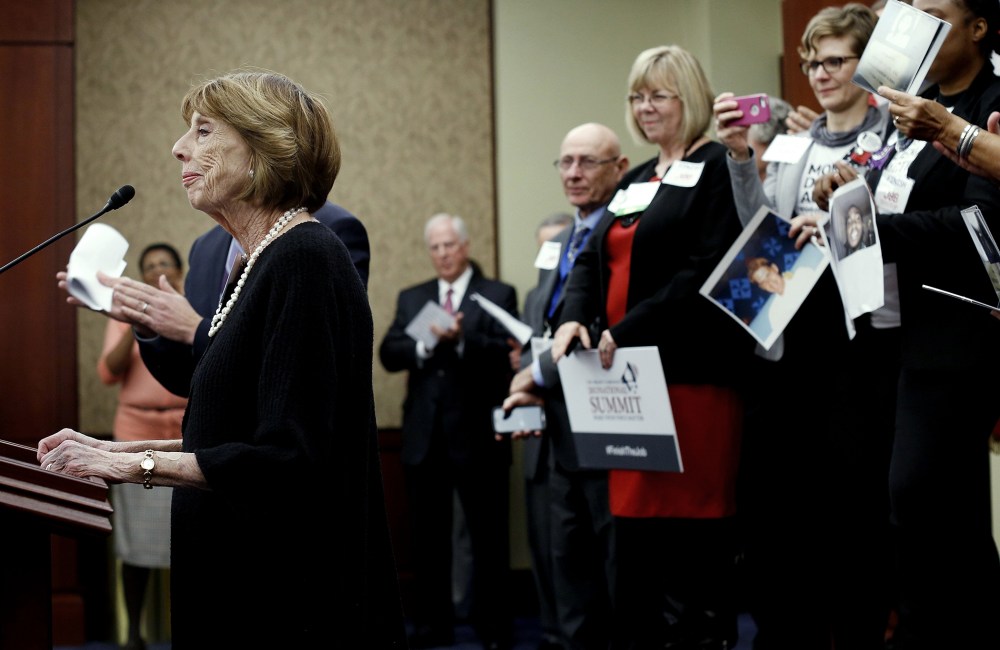Gun control advocates and activists this month are calling on Congress to step up and finish what it started.
“It comes down to three words: ‘Finish the job,’” Dan Gross, president of the Brady Campaign to Prevent Gun Violence, said at a press conference. The event marked the final hours of a three-day conference dedicated to pressing elected officials to revive legislation to expand background checks on gun sales.
The Brady Campaign 2013 National Summit, which began Monday in Washington, D.C., brought together hundreds of organizations, advocates, and activists to learn ways to engage friends, neighbors, and elected officials in resurfacing the national gun debate. They spent the final day lobbying on Capitol Hill to influence elected officials to “finish the job.”
Related: Americans still divided on gun-control legislation
Individuals who have lost relatives or friends to bullets stood behind the podium holding signs encouraging leaders to pass stricter legislation.
“Our American dream became the American nightmare when a 21-year-old drove through the neighborhood,” said Sherilyn Byrdsong, whose husband Ricky was fatally shot outside his Illinois home on July 2, 1999. “This killer shot him down as if he were a wild animal, right before our kids’ very eyes.”
This month marks the 20th anniversary of the government’s signing of the Brady Bill. Jim Brady, the then-press secretary to former President Ronald Reagan, was shot and seriously wounded in 1981 during an assassination attempt on the commander-in-chief. Brady and his wife, Sarah, consequently joined the fight for sensible gun-control laws.
The Brady Bill, which requires a five-day waiting period and background checks on handgun purchases, was signed into law on Nov. 20, 1993 after a seven-year battle to gain support.
“It is and can be a long process,” Sarah Brady, chairwoman of the Brady Campaign whose efforts helped pass the bill, told the audience. “I want you to not get discouraged at all. Just remember seven years and you’re going to do it quicker. Beat my record.”
The Senate failed in April to pass a bipartisan background checks bill.











